Gasoline spills happen from time to time. And if you're not careful, you will allow this fuel to drip over your vehicle's paint whenever you fill it up. If you are wondering if gasoline will damage your paint job, we can help you. We researched the effects of this fuel on vehicle paint from multiple professional sources so that you'll know for sure what to expect.
Gasoline will do damage to your vehicle's paint. This damage is not immediate, and it will take repeated exposure to be noticeable. To protect your car's paint job, it's essential to clean any spilled gasoline from its surface as soon as possible.
Now that we know that gasoline will damage your car's paint over time, we'll take a closer look at how this happens. You might also be curious if gasoline will damage your tires or what you should do if you spill this fuel. For the answers to these questions and more, read ahead in this post to see what our research has uncovered.
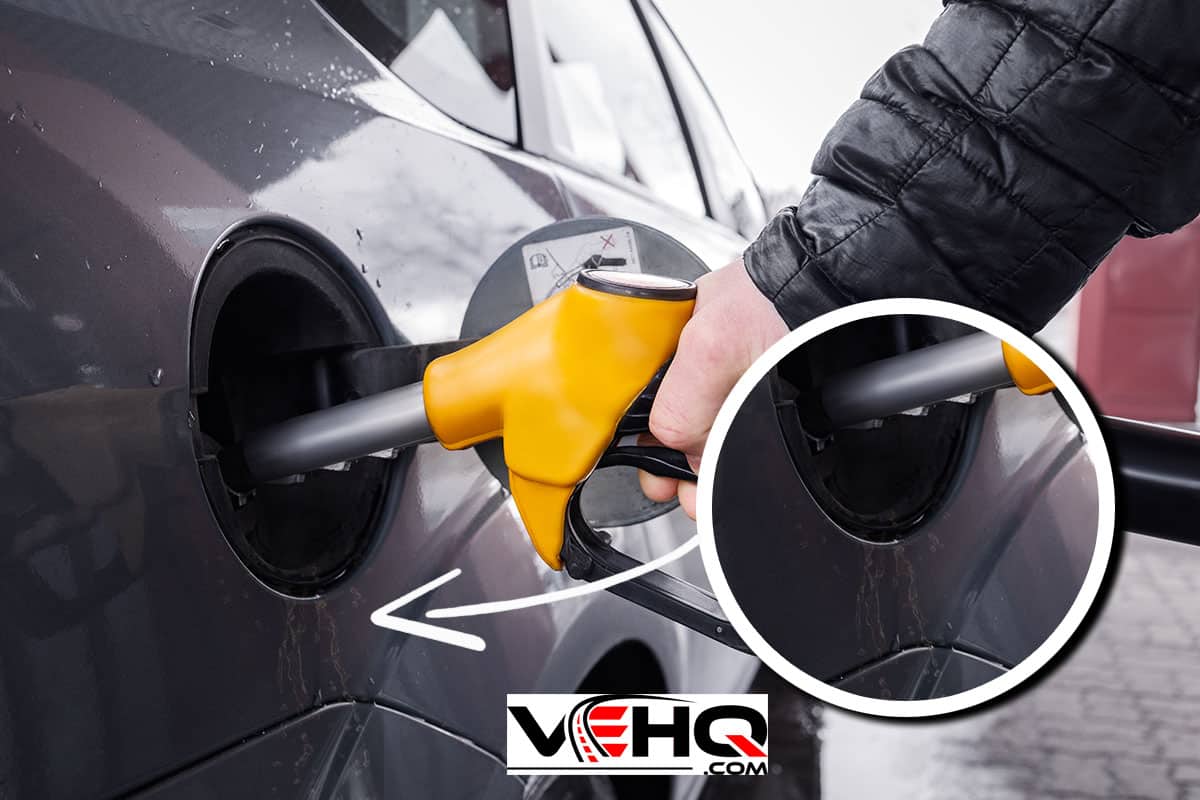
How does gasoline damage the paint on a vehicle?
A thin layer of wax should protect your vehicle's paint job. Even if you don't routinely wax your vehicle, newer ones will have a clear coat applied to the paint for protection. This coats the paint, shielding it from minor scratches while making it glisten in the sunlight. But this coat isn't permanent and can be eaten away by solvents if you are not careful.
Gasoline will act as a solvent when the wax is exposed to it. Repeated exposure, like drips of gasoline at every fill-up, will eat this protective coating away from the vehicle. And when the wax is gone, the paint is directly exposed to this fuel.
When the gasoline is on the bare paint, it works to soften it. By doing so, it leaves the paint discolored with a stain. Over time, this stain will be harder and harder to remove.
What to do if gasoline is spilled on your car's paint
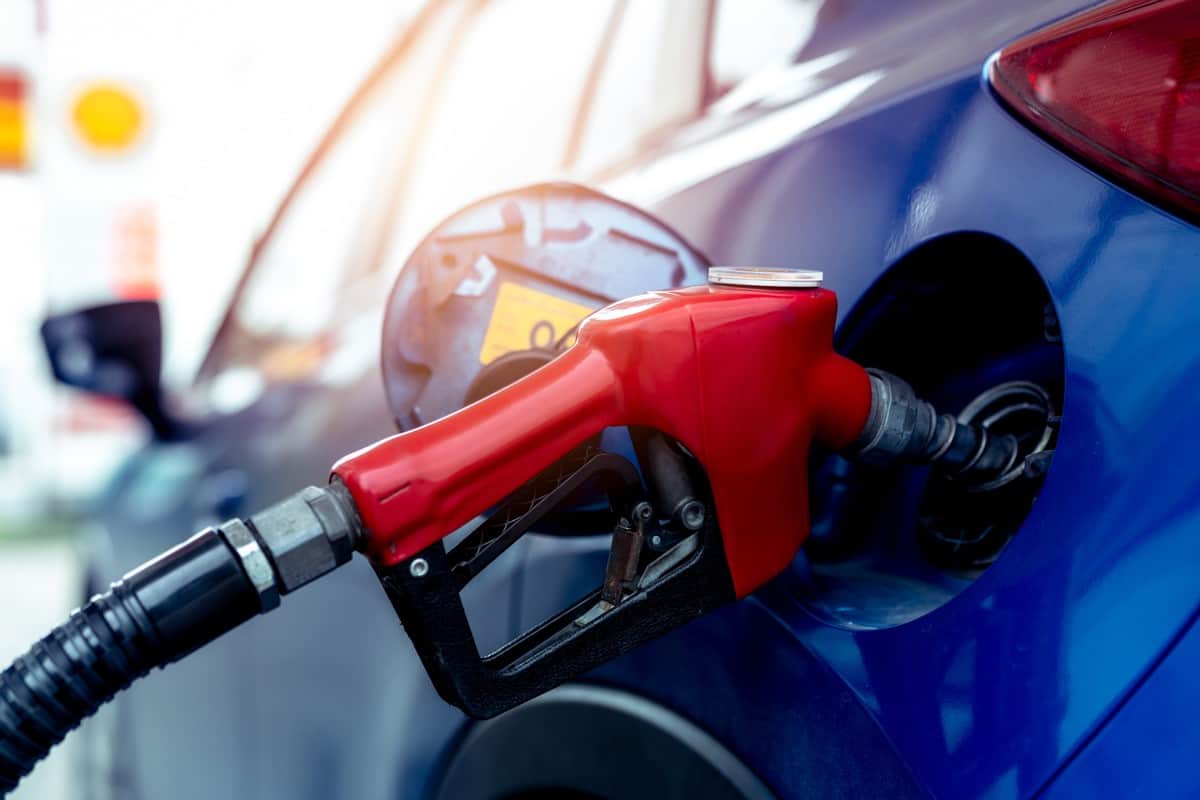
Spills are going to happen occasionally, no matter how careful you are. But even the smallest spill of gasoline on your vehicle's paint needs to be addressed as soon as possible.
You can safely remove this spilled fuel from your paint job with an approved cleaner and a soft, microfiber cloth. These can be safely kept in the trunk of your vehicle for just this type of situation. Gently spray the cleaner on the impacted area, and wipe it clean with the cloth.
It's important to do this as soon as possible. Gasoline evaporates quickly, and as it evaporates, it causes the most damage. Clean the area as soon as you notice it, and protect your paint!
Can I use water to clean up gasoline?
Most people have a go-to of water and a towel to clean up messes. But in the case of gasoline, water is not a great idea at all. There's some basic science behind why this liquid isn't effective for cleaning up fuel.
Water and gasoline do not mix. Water, being a denser liquid, will not combine with the fuel. So when applying water to a gas spill, you will just move the fuel around instead of cleaning it up. This not only wastes your time, but it creates an even bigger mess.
Only used approved methods to clean up gasoline spills. Water should never be employed in the cleanup, whether it's a few splashes on your paint job or accidental dumping of your gas can on the pavement.
Does gasoline damage a vehicle's tires?
We know that gasoline will damage the paint. But the paint job isn't the only part of your car that you should worry about when it comes to exposure to fuel. The tires are also able to be damaged by gasoline.
The tires are made from a combination of natural and synthetic materials. The rubber in the tires, while making up only a portion of the material, is the most susceptible to damage from gasoline and solvents. The fuel will eat at the rubber in the tires, slowly weakening them over time.
We strongly advise you to avoid getting gasoline on your tires at all. Avoid driving through puddles of spilled fuel at service stations. If you park in a garage, ensure you are not parking on spilled oil or gasoline. Clean up spills as they happen.
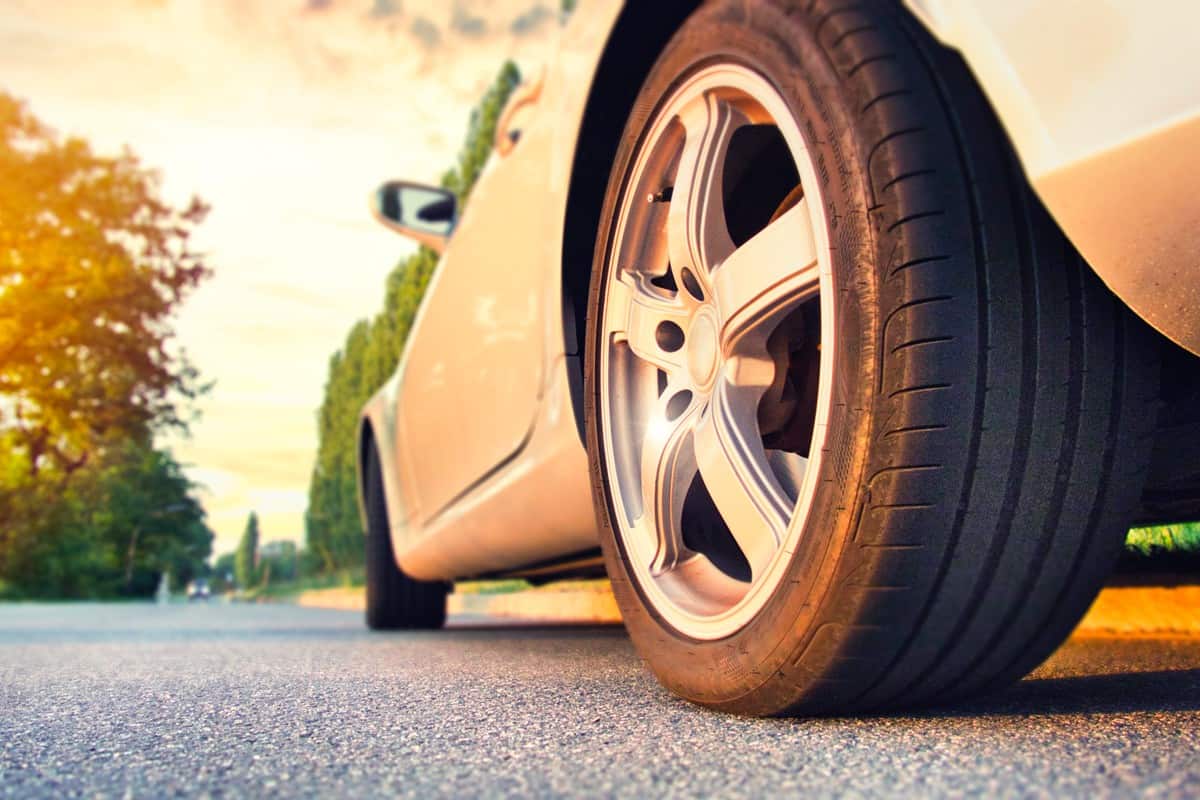
What should I do if I spill gasoline?
We all spill a bit of gasoline from time to time. Being in a hurry at the pump can make use careless, leading to unwanted fuel drips on your car's paint job. While we know the best way to address these drips from our tips earlier in this post, it's essential to know how to clean up a bigger spill if one should happen.
Cleaning spilled fuel on the ground
Allowing gasoline to stay on the ground is dangerous. This fuel is flammable and could be ignited and start a fire near working gas pumps. Gasoline will also seep into the ground, damaging the environment.
Gas spills should be absorbed quickly by an approved material. If a spill happens at a service station, notify an attendant immediately. They will apply a special absorbing material that soaks up the fuel. They then sweep it up and dispose of it.
But if you are at home, you will probably not have access to this commercially approved material. Baking soda is your best bet if you spill gasoline on the floor of your garage or driveway. This can be liberally applied and scooped up, taking care of your problem.
Cleaning spilled fuel inside your vehicle
There might be an occasion when gasoline gets spilled inside your car or truck. Whether it's from a leaky gas can or another source, the spill will still need to be addressed as soon as possible.
Baking soda also works well in this case. Apply it to the impacted area, and it will form a paste. Scoop the paste away after it has absorbed the fuel. It will take several minutes.
You will need to clean the area with an approved upholstery cleaner. If this doesn't remove the odor of gasoline, apply liberal amounts of an upholstery freshener, like Febreeze.
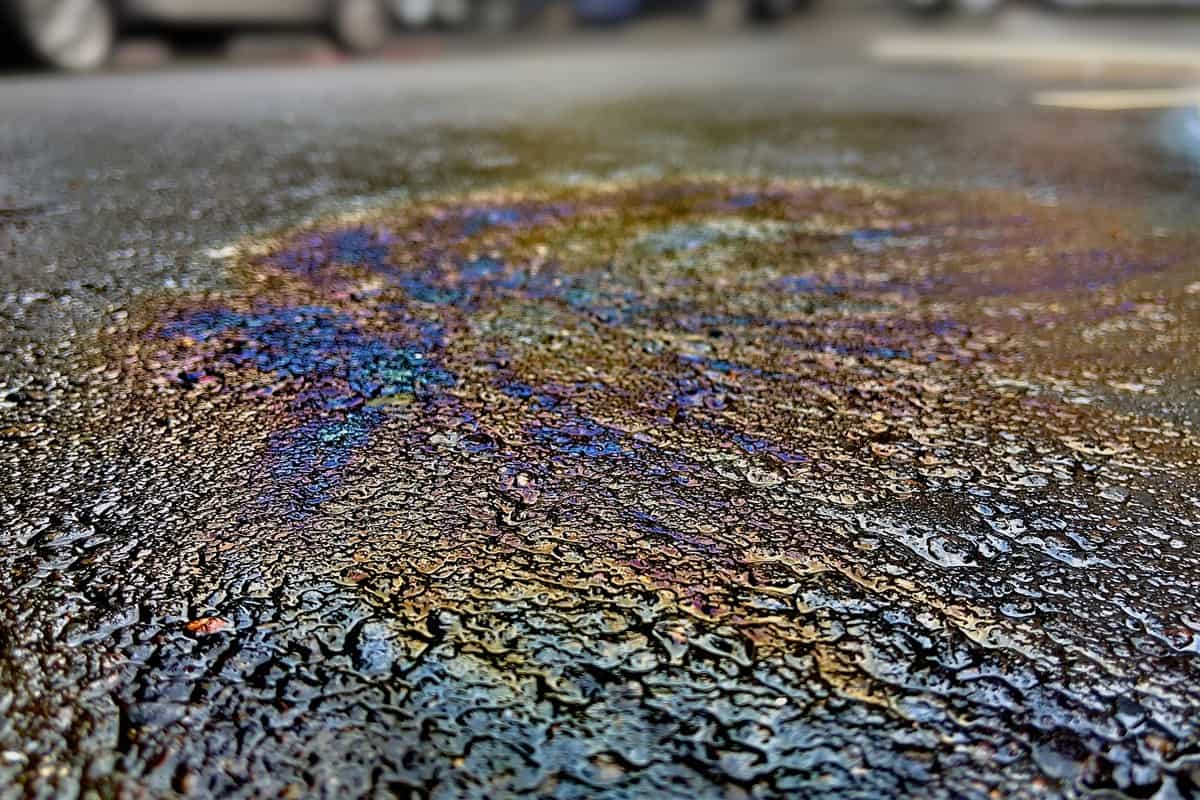
How long is spilled gasoline flammable?
We know that gasoline is a flammable substance. But there is a shelf life for how long it stays a danger after spilling on the ground. Though it should always be cleaned up as soon as possible for environmental reasons, you might be happy to learn that this fuel is only flammable for about 15 minutes after it is spilled.
Gasoline evaporates very quickly. The more of it that evaporates, the less flammable it becomes. When it has evaporated, the leftover residue is not flammable at all.
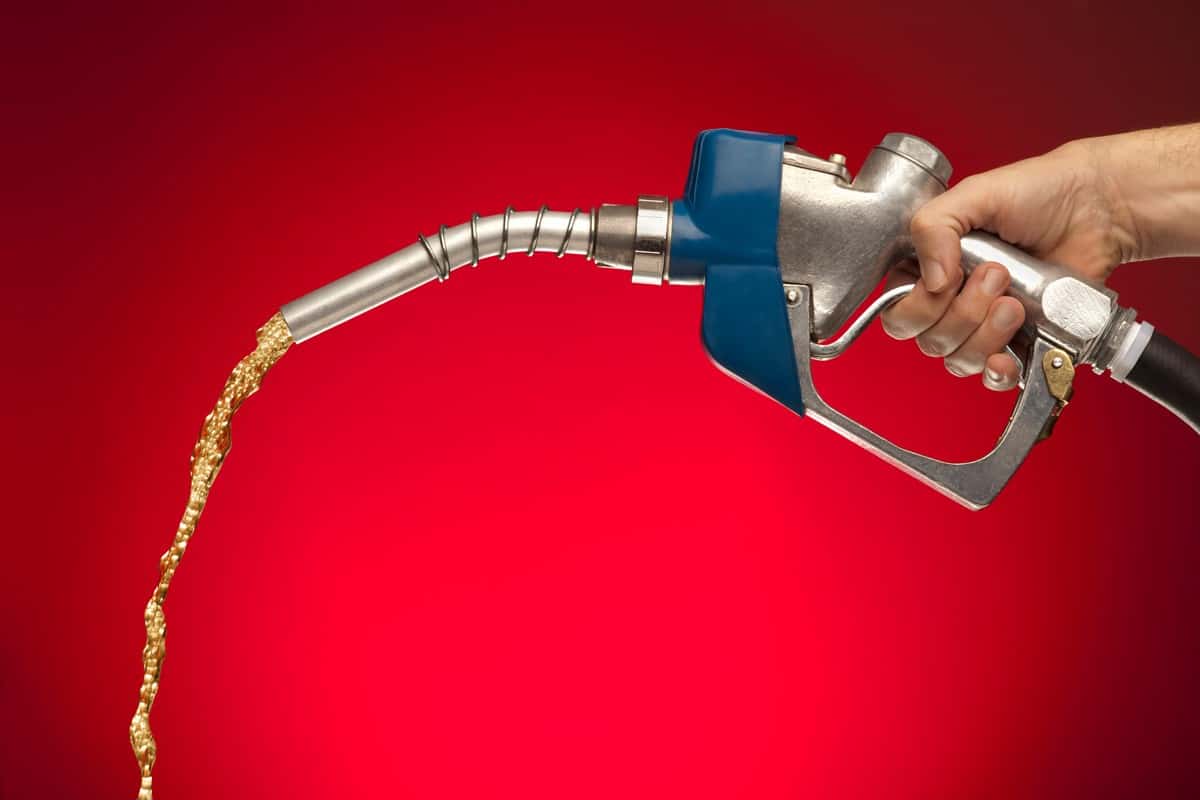
Final thoughts
This vital fuel for internal combustion engines should always be handled carefully. Not only is it flammable, but it will cause serious harm to the environment if it is spilled. You should remedy a gasoline spill as soon as possible, even if it is just a few drops on your vehicle's paint during a fill-up.
We hope this post on your vehicle's paint answered all of your questions. For additional information, we suggest reading the following automotive posts:
How To Rejuvenate And Recondition Old Gasoline?
